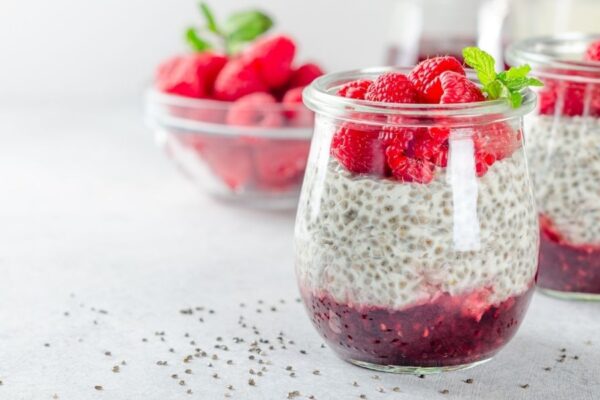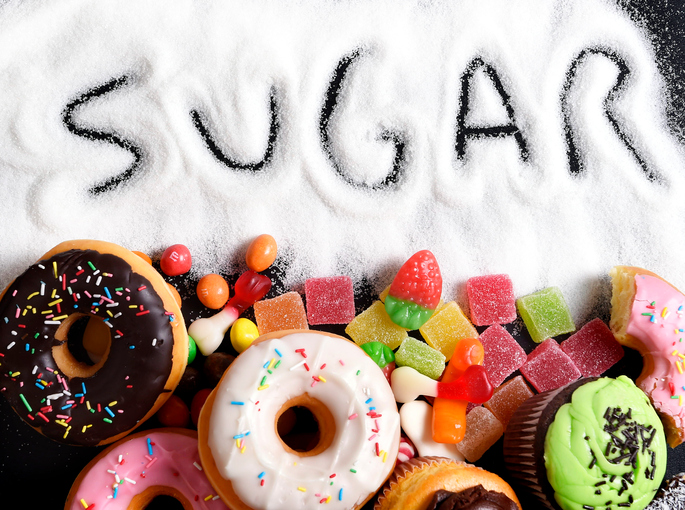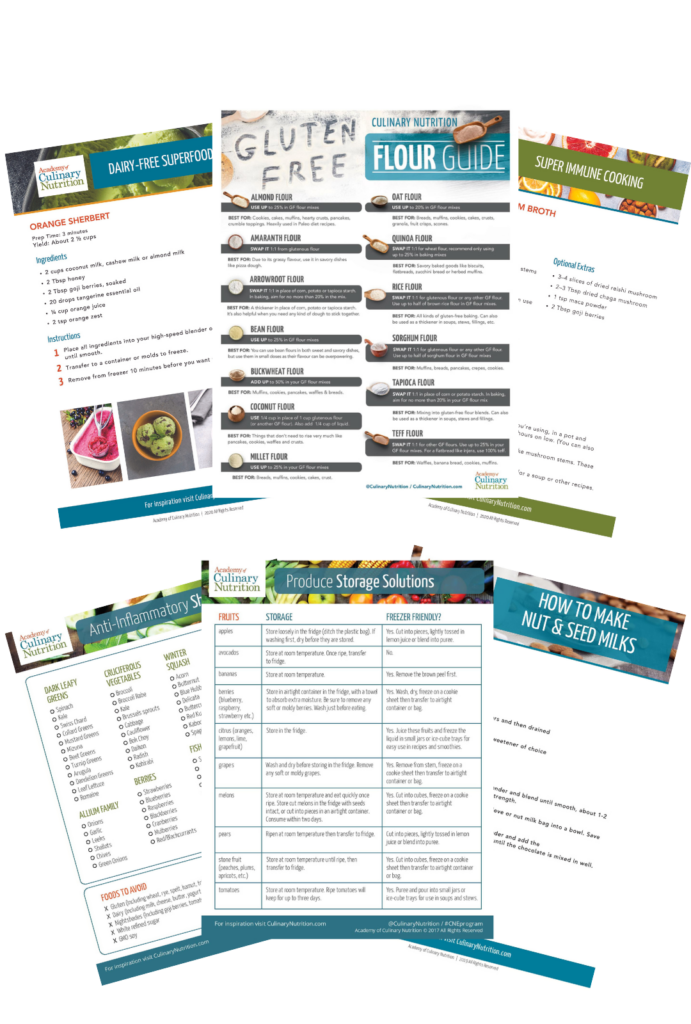16 Mood Boosting Foods
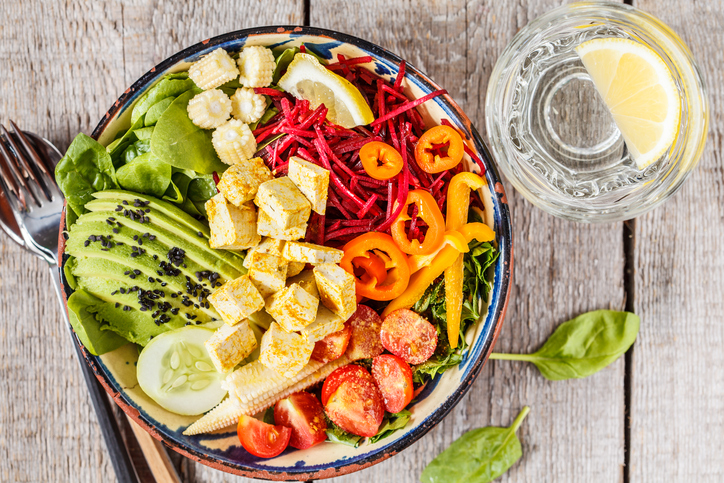
We all feel blue from time to time, and food can play an important role in helping us lift our mood and improve our outlook on life. Open up the fridge and poke through the pantry, where you’ll find a wide array of mood boosting foods that are healthful, satisfying and delicious.
Before we get into the specific mood-boosting foods below, there are a couple of key dietary strategies to help you improve and balance your mood with food:
- Balance blood sugar levels. Skipping meals, eating erratically or eating sugary meals and snacks can send our blood sugar levels out of whack. This leads to an imbalance of hormones – including stress hormones – and can make us irritable, cranky or ‘hangry’. Hypoglycemia, or low blood sugar, is linked to depression and anxiety. Consuming complex carbohydrates, protein, fat and fibre with each meal and snack will help your blood sugar levels stay on track.
- Consume nourishing fats. Fats are essential to the nervous system. Our brains are about 60% fat and good fats help support brain function and integrity, aid the production of neurotransmitters and reduce inflammation. Learn more about the best fats and oils for health here, and discover the dangerous side of vegetable oils.
- Eat your amino acids (protein). Certain amino acids, which are the building blocks of protein, are the precursors to brain neurotransmitters that help balance and better our mood. These 21 ways to get more protein in your diet can certainly help you!
- Get the B vitamins. The spectrum of B vitamins helps soothe stress and support the nervous system. Many of the B vitamins are also co-factors in aiding brain health and formulating neurotransmitters. B vitamins can be found in many vegetables, like dark leafy greens and gluten-free whole grains.
What If I’m Not in the Mood to Cook Mood Boosting Foods?
If you’re down in the dumps, you may not feel like whipping up mood boosting foods from scratch, or even have the energy to do so. Here are some suggestions to help you make your mood-boosting foods a reality.
- Take advantage of the good times and meal prep. When you’re feeling able, batch cook a few items that you can leave in the freezer for your future self. One pot meals like soup or chili are great options, as you can make them in big batches and portion them in the freezer. You could also bake a batch of muffins, prep some smoothie kits, or make other recipes you enjoy eating. Learn all of our tricks to batch cooking in this guide.
- Start a mood-boosting cooking cooperative. Get collaborative by joining or starting a cooking cooperative. That way, you only need to make one dish but get to take home multiple goodies – plus you get the benefits of connecting with your friends.
- Purchase time-saving tools or equipment that will ease the burden. Appliances like slow cookers and Instant Pots can help shoulder some of the workload; yes, you’ll still need to do some prep, but once that’s done meals come together easily.
- Make it simple. You don’t need to spend hours cooking mood boosting foods to reap the benefits. Blend up a smoothie, have some avocado toast or cook a veggie omelette if that’s what appeals to you.
- Remember you are doing the best you can. Try not to be too hard on yourself. Cook when you’re able and try to make good store-bought choices when you aren’t up to the task.
16 Mood Boosting Foods
Salmon
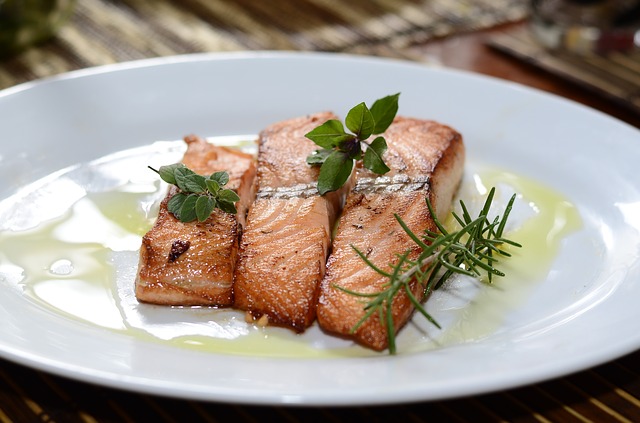
Salmon is an excellent source of omega-3 fatty acids, which are highly anti-inflammatory. Omega-3s, particularly EPA and DHA, are crucial for brain and nervous system development. They have been shown to ward off depression – studies indicate communities where people consume more fatty fish are less likely to experience anxiety and depression, plus they can even affect our personalities and impulse control.
Aside from the omega-3s, salmon is also high in protein, Vitamin B12 and Vitamin D. Vitamin B12 works in concert with folate to help convert amino acids into neurotransmitters (depressed patients tend to have low levels of both), while Vitamin D deficiency is linked to depression.
Dark Leafy Greens
These are rich in a wide variety of nutrients, including fibre to balance blood sugar, B vitamins to boost brain function, and iron. Evidence indicates that iron deficiency is linked to altered emotional behaviour, anxiety and the disruption of neurotransmitters. Iron (and B vitamins) also help us produce energy, and more energy may lead us to feeling positive and bolster our ability to participate in the activities we enjoy. Too much iron in the brain, however, can also impair neurotransmitters – it’s a Goldilocks situation where you get your iron levels ‘just right’.
So grab a bunch of spinach, kale, collards, Swiss chard, mizuna, mustard greens, dandelion, or whichever dark leafy greens you enjoy, and try different ways to add them to your diet.
Get your FREE Anti-Inflammatory Shopping List Plan plus 35 more free resource guides!
Fill out the form below for instant access.
Free Resource Library
Enjoy more than 40 downloadable guides, recipes, and resources.
Chia Seeds
Chia seeds are a plant-based source of omega-3 fatty acids, and they contain a wealth of additional nutrients like protein, fibre, calcium and iron. This mood boosting food is also a good source of magnesium, nature’s relaxant mineral, and it can help reduce stress and anxiety.
These little seeds are very versatile in a culinary nutrition context:
- they’re a great egg replacer
- they make a mean pudding
- they’re wonderful in baked goods (like this chocolate chia bread)
- are great for dairy-free smoothies and smoothie bowls
- are fantastic in dairy-free elixirs
Turkey
Turkey is rich in tryptophan, an amino acid that helps us produce the mood-boosting neurotransmitter serotonin. Low levels of tryptophan can lead to lower serotonin production and an increase in anxiety or depressive symptoms, while diets high in tryptophan reduce depression and irritability. It also has tyrosine, another amino acid that is a precursor to brain neurotransmitters.
But that’s not all – turkey contains a multitude of B vitamins – including B6 and B12, and the mineral zinc. A zinc deficiency is associated with mood disorders like anxiety and depression.
Lentils
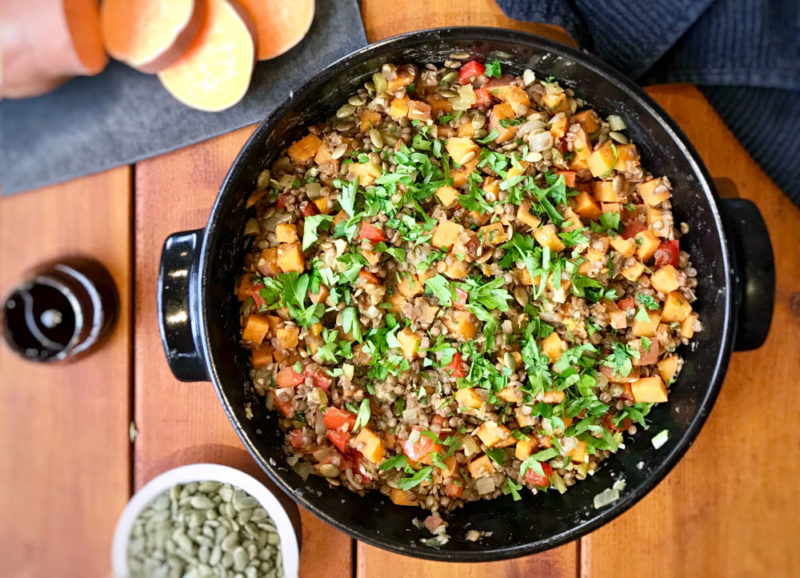
These little but mighty pulses provide a good supply of folate, a B vitamin that helps develop the nervous system. Folate deficiency is associated with depression, and adding more of it to your diet can help boost your mood.
They are also high in fibre for blood sugar control, iron, protein and Vitamin B6; the latter helps our bodies make mood-boosting neurotransmitters like serotonin and dopamine. Low levels of Vitamin B 6 are associated with depression.
Be sure to try this lentil goulash!
Eggs
One of our favourite mood boosting foods, eggs are high in protein, Vitamin D and B12. They have a payload of choline, a nutrient that supports the nervous system, improves mood and helps produce neurotransmitters, as well as the antioxidant selenium. Since the brain is more vulnerable to oxidative damage, consuming antioxidant foods can help protect and preserve the brain (and our positive mood in the process).
Eggs are easy to make and transport when you’re on the go, and there are a ton of ways you can consume them:
- Hard boiled as a snack
- Scrambled with steamed greens or other veggies
- Eat them in an omelette
- Poach them on toast with avocado
- Use them in baking
- Hard boiled or hard poached on a salad or recipe-free dinner bowl
Sardines
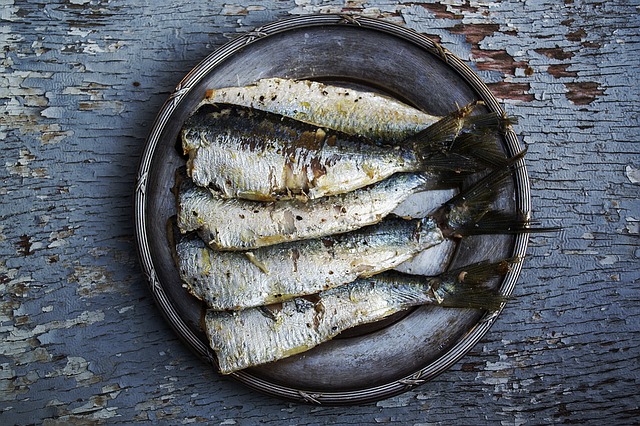
A fatty fish that is filled with mood boosters: it contains sky-high levels of Vitamin B12, as well as omega-3s, selenium, protein, Vitamin D and choline.
Mash them up with lemon, parsley and sea salt, make a veggie + sardine hash, or chop them up into gluten-free flatbreads.
Avocado
A nutritious fat with an ultra-creamy texture, avocados have Vitamin B6, fibre, Vitamin E and Vitamin C. They also contain Vitamin B5, which helps synthesize neurotransmitters and supports the adrenal glands.
Bell Peppers
Beautiful bell peppers are high in the antioxidant Vitamin C, which can help with neurotransmitter function and improve cognition. Vitamin C therapies have been shown to improve mood and reduce distress.
Fermented Foods
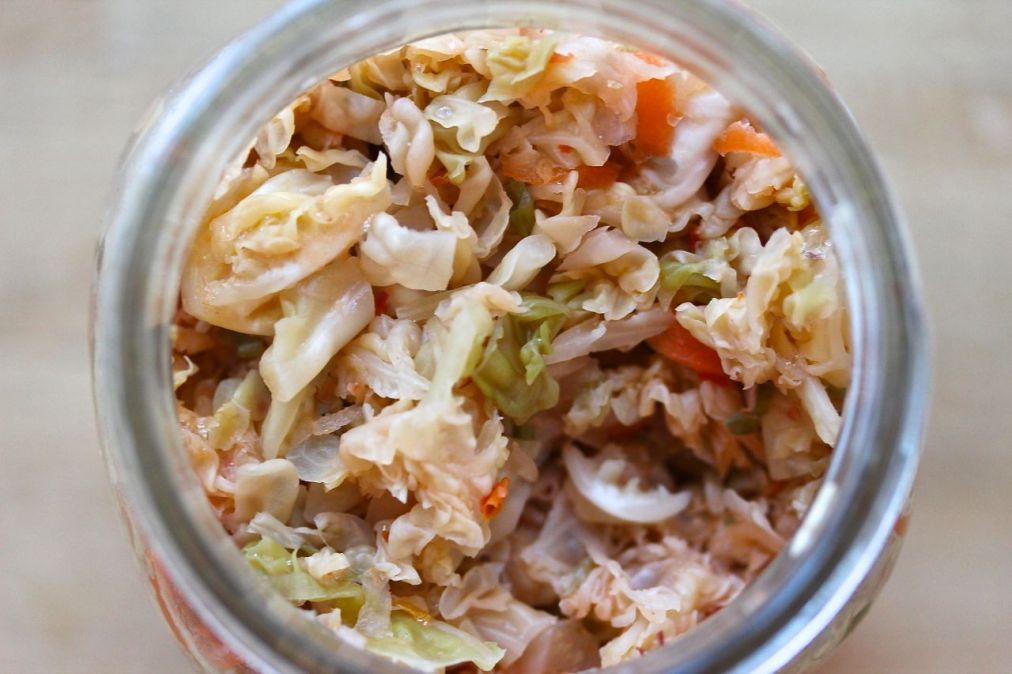
A wealth of research points to the important link between the gut and the brain. About 95% of serotonin is produced in the digestive tract, and that means making gut health a priority will help to improve our mood. Scientists are also investigating the connections between gut bacteria and mood/cognition. A few meta-analyses concluded that probiotics can help alleviate depression. Learn more about the gut microbiome here.
Fermented foods, from kombucha to sauerkraut to dairy-free yogurt, are a fantastic source of probiotics. It’s easy to make them at home and they’re one of our go-to mood boosting foods, and they’re also great for supporting immunity.
Learn to make your own fermented foods at home in our Fundamentals of Fermentation course.
Almonds
This mood boosting food is a great go-to for protein (including tyrosine for neurotransmitter production), magnesium, fibre and Vitamin E. As an antioxidant, Vitamin E can help combat free radical damage in the brain and has been shown to improve memory and cognition.
Have them on their own as a snack, incorporate them into trail mix or granola, make your own dairy-free almond milk, or use the almond pulp in a variety of delicious ways.
Chocolate
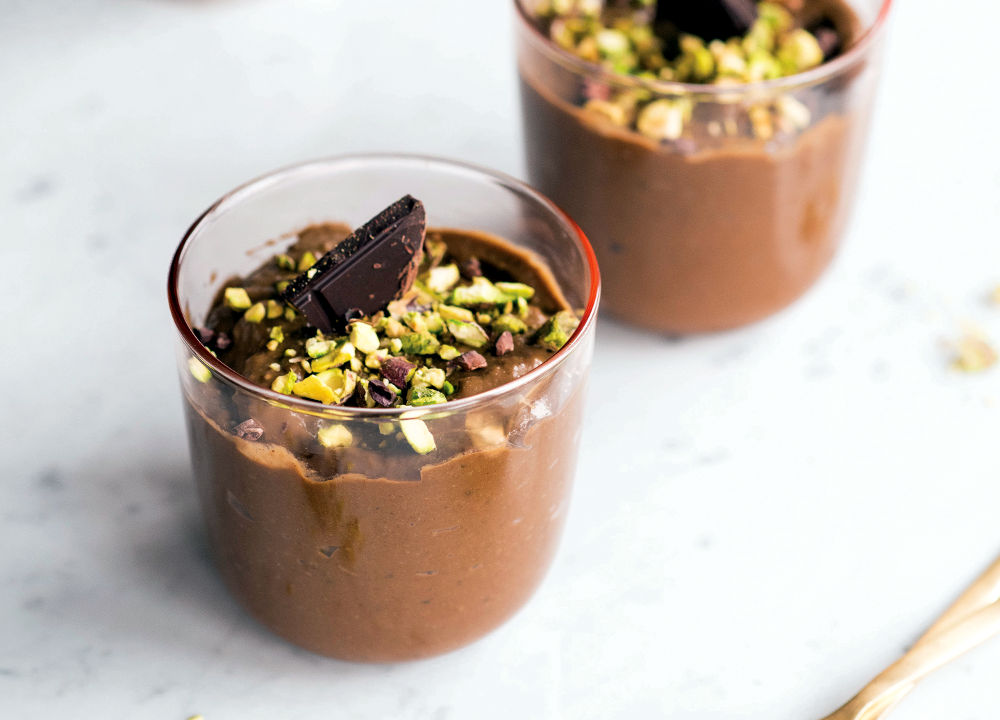
Yesssssssss. Chocolate makes you happy! It contains a number of potent compounds such as phenylethylamine, which boosts endorphins, and anandamide, otherwise known as ‘the bliss chemical’. Studies on chocolate show that it can improve mood and cognition, plus it’s a rich source of antioxidants, iron and magnesium to help us relax. Evidence indicates that chocolate is particularly helpful when eaten mindfully – so don’t gobble it all down, savour it instead.
Grab chocolate inspiration in these posts:
- 20 Best Dairy-Free Chocolate Recipes
- Chocolate Avocado Pudding
- Simple Hemp Chocolate Spread
- 20 Amazing Healthy Holiday Desserts
- Grain-Free Chocolate Sandwich Cookies
- 20 Best Dairy-Free Ice Cream Recipes
- 20 Best Real Food Frosting Recipes
Sunflower Seeds
Sunflower seeds are a good source of Vitamin E, Vitamin B6 and magnesium. They’re a great option for those with nut allergies – you can easily swap ground sunflower seeds or sunflower seed butter whenever nuts are called for. Learn how to make your own sunflower seed butter here (you can also infuse it with dark chocolate for an extra mood boost!).
Sweet Potato
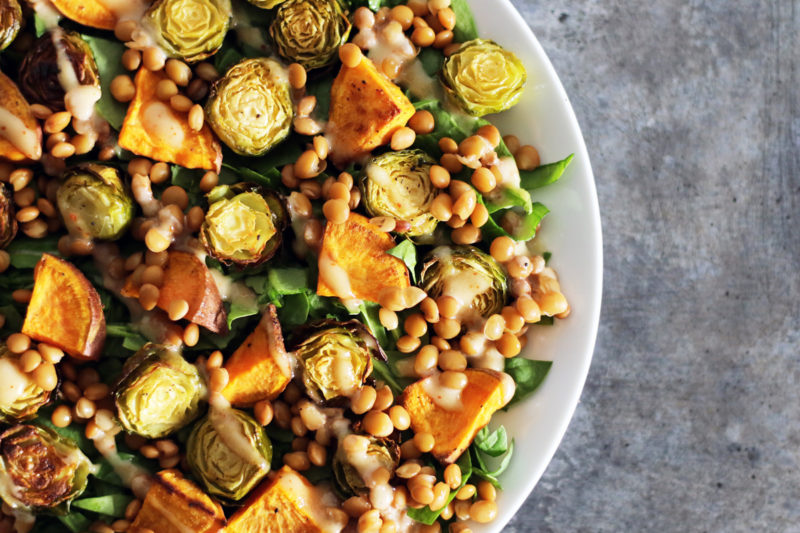
Sweet potatoes contain an abundance of mood boosters like Vitamin B6 (as well as other B vitamins), Vitamin C and fibre. And there are so many ways to eat them:
- have them plain, either steamed or roasted
- drizzle them with coconut oil, nut butter and cinnamon
- make them into chips for a snack
- add them to salads
- use them in stews and soups
- make sweet potato ‘toast’
- incorporate sweet potatoes into smoothies and baking
- throw them in the Instant Pot
- stuff them with chili, curry, sauteed ground meat or beans
Ghee
Ghee, or clarified butter, is chock-full of nutritious fats and Vitamin D, plus it helps to heal the digestive tract, which can lead to better digestion and the beneficial gut bacteria that supports our mood. Learn how to make your own ghee at home.
Culinary Adaptogens
Adaptogens are plants that help us adapt to mental, emotional and physical stress. Get our complete guide to using culinary adaptogens, as well as our 20 favourite herbs for tea-making.
By incorporating these mood boosting foods into your menu planning, you just might find yourself finding your day a little bit brighter.
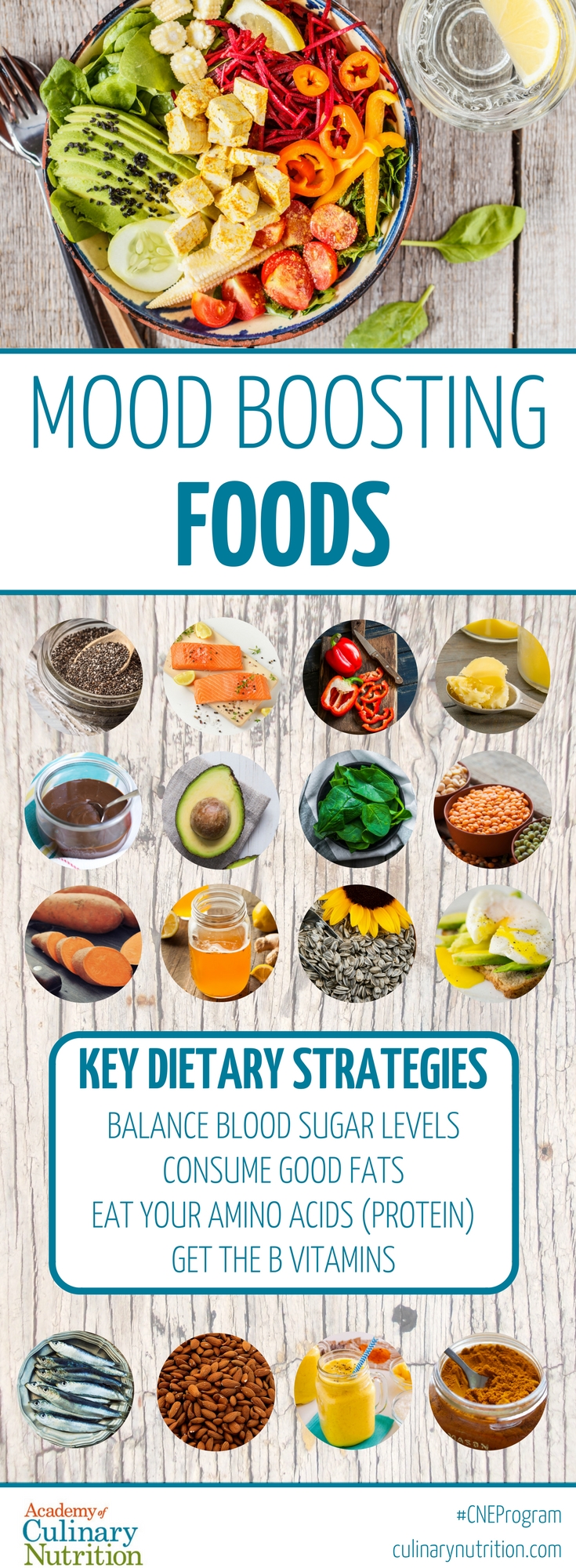
Free Resource Library
Enjoy more than 40 downloadable guides, recipes, and resources.




















